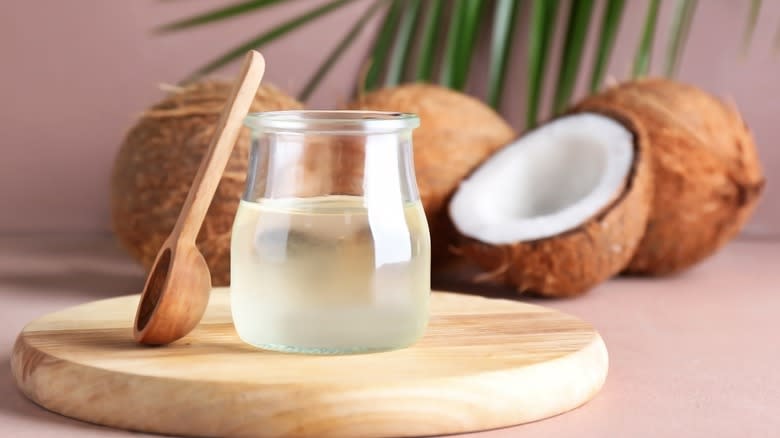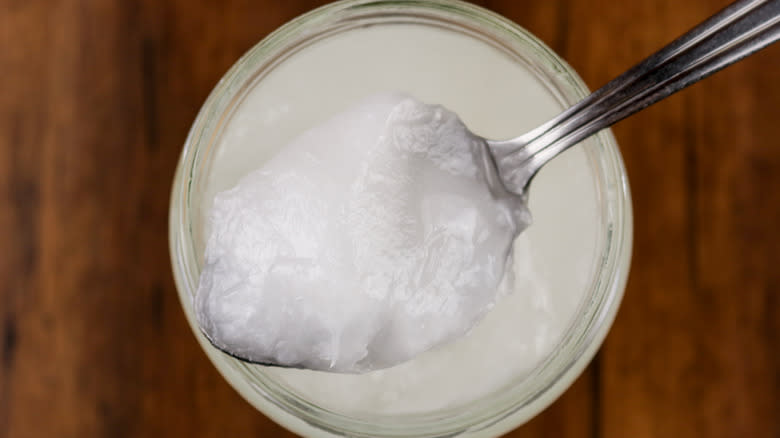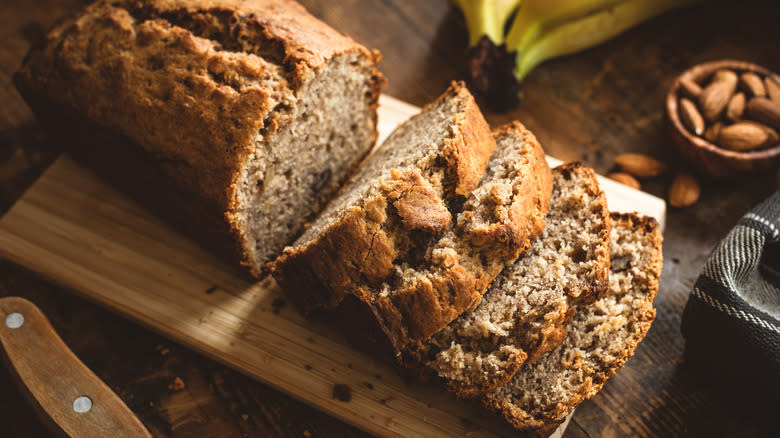The Ratio To Remember When Substituting Coconut Oil In Baking

Traditional baking projects tend to rely on some staple, go-to ingredients like eggs, sugar, flour, and of course, a type of fat. Many times that means good old-fashioned butter, but you'll also find recipes for oil-based confections that rely on canola, vegetable, or even olive oil.
When it comes to flavor and function, though, coconut oil is a baker's best friend. Not only can it contribute that delicious essence of the namesake fruit, but it's also perfect for anyone looking to vegan-ize their favorite treats.
The great news is, if you're hoping to start converting your recipe collection — or even make a one-time swap in a pinch — the ratio for substituting coconut oil in baking couldn't be simpler to remember. It's an easy, entirely even one-to-one exchange for the fats in your formula. With that rule in mind, you can start to explore the many benefits of baking with coconut oil, and how it will help to enhance your creations.
Read more: 8 Baking Sheet Mistakes You Want To Avoid
How Coconut Oil Works For Your Creations

If you've ever bought a jar of coconut oil, you may have noticed that at times it appears solid, while at others it's clearly more of a liquid form. This has to do with the melting point of the stuff. In the summer, for example, if your kitchen cabinets clock in above the 70 degree Fahrenheit range, you're going to have a pourable product on your hands. Below that temperature though, the oil solidifies.
This helps to make it even easier to substitute in baking, as you can use the warmer liquid version when a recipe calls for oil and the cooler, solid state for a butter swap. Making it even more useful, you can also use this ingredient to line your baking vessels instead of a nonstick spray, which doubles down on the oil's flavor and other good stuff.
Beyond utility and taste, coconut oil is an excellent baking addition because it won't mess with the texture of your treats. Whereas some fats can feel greasy or thick on the palate, coconut oil melts at such a low temperature that it manages to bring moisture and flavor while maintaining a clean mouthfeel.
Coconut Oil Baking Inspiration

Sounds pretty great, right? Add to this simplicity the fact that coconut oil is packed with benefits, and in fact can save your body in so many ways from health to beauty that it seems like this is a staple you might want to substitute whenever possible.
Because of that coconut element, there are some goodies that are especially well-suited to its presence. Coconut oil is your new secret for the best banana bread, for example (toss in some complementary chocolate chips or walnuts for kicks). Give your best chocolate brownies a kiss of coconut flavor, or even convert a classic buttery pound cake recipe into a vegan, butter-free version with a tropical spin.
That said, if you're not feeling the coconut flavor, you can also purchase refined coconut oil, which will be more neutral as opposed to the stuff labeled virgin, pure, or unrefined. By remembering this easy substitution ratio, you have no reason not to experiment with either kind of coconut oil for any baking need.
Read the original article on The Daily Meal.


